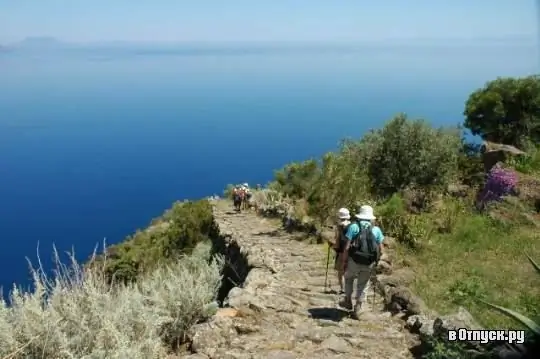
Description of the attraction
Alikudi is the westernmost of the Aeolian Islands. This volcanic island was formed about 150 thousand years ago on the site of the Montagnola volcano, which is now dormant. Alikudi, with an area of about 5.2 square kilometers, has a round shape. Filicudi Island lies 20 km to the east.
The name of the island comes from the Greek word "erikusa" - as the ancient Greeks called heather, which is very common in Alicudi. Despite the fact that the first people on Alicudi appeared in 1700-1800 BC, for many centuries this island was uninhabited, and only in the Middle Ages, like other Aeolian Islands, it turned into a pirate base. A permanent population appeared here only in the 18th century. Today Alicudi is home to a little more than a hundred people who are engaged in fishing and growing peaches and agaves. Tourists also come here, for whom a restaurant with a fish menu has been opened. The latter are attracted to the island by the unhurried rhythm of life and untouched nature - only here you can see huge grouper fish that swim up to tourists with curiosity. Due to the peculiarities of the landscape, there are no roads at all on the island, and besides, it is difficult to ride a bicycle here. You have to climb lava stones on foot or on cute donkeys that carry luggage and tourists themselves from the pier to the houses scattered along the coast. There are no discos, pizzerias, eateries, beer bars, boutiques, hairdressers, bakeries and gaming halls in Alicudi - there is only one hotel with a restaurant, two shops and a magazine kiosk. And wonderful, untouched nature - rocky beaches, clear sea and indescribable beauty landscapes, which are conducive to rest and complete relaxation.
Near the Palumba reef, traces of a Bronze Age settlement (16-17 centuries BC) have been preserved, and ceramic fragments from the era of Ancient Rome have been discovered on the eastern coast, possibly traces of some kind of shipwreck. The only beach that can be reached by land is Alicudi Porto. All the rest will have to sail by boat. Divers will love the Skoglio Galera reef with its rich marine life and crystal clear waters.






